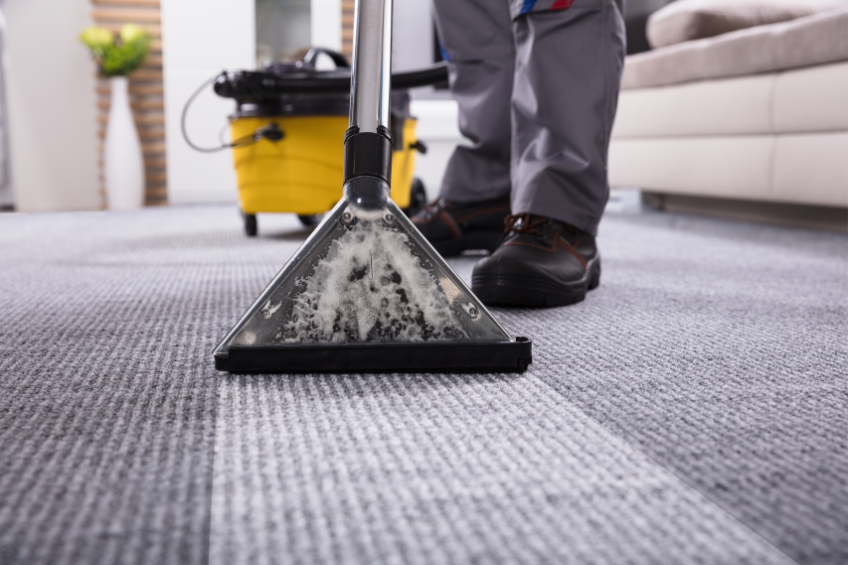Eco-friendly cleaning is no longer just a passing trend - it's rapidly becoming a standard expectation in homes, offices, and public spaces across the globe. For cleaning service providers, this shift towards environmentally conscious practices presents both an opportunity and a challenge. On one hand, adopting green cleaning methods can attract eco-aware clients and boost your brand’s reputation. On the other hand, it places new demands on staffing, requiring teams that are not only skilled but also knowledgeable about sustainable cleaning techniques and products.
In this blog, we will explore the rise of eco-friendly cleaning, what’s driving this demand, and how cleaning service providers can train and staff their teams to meet the growing expectations for sustainability.
What’s Driving Demand for Eco-Friendly Cleaning?
The demand for eco-friendly cleaning has grown significantly in recent years, fuelled by a combination of environmental concerns, health considerations, and evolving consumer preferences.
1. Environmental Awareness
With climate change and pollution dominating conversations globally, eco-conscious consumers and businesses are making lifestyle changes to reduce their environmental footprint. According to research conducted by Nielsen, 73% of global consumers say they are willing to change their consumption habits to reduce their environmental impact. This mindset extends to cleaning services, where clients prefer providers that use biodegradable products, minimise water waste, and comply with green cleaning standards.
2. Health and Safety
The push for eco-friendly cleaning isn’t just about saving the planet; it’s also about protecting individual health. Conventional cleaning products often contain harsh chemicals that can trigger asthma, skin irritations, and other health issues. Eco-friendly products, on the other hand, are made from natural, non-toxic ingredients, making them safer for customers as well as staff.
3. Customer Preference for Sustainable Brands
Millennials and Gen Z, in particular, are known to favour businesses that share their values, including sustainability. Offering eco-friendly cleaning services can give cleaning providers a competitive edge in a market where differentiation is key to standing out.
The Role of Staffing in Eco-Friendly Cleaning
While the benefits of offering green cleaning services are clear, implementing these practices isn’t as simple as swapping out a few products. It requires a workforce that is both capable and committed to sustainable cleaning. Here’s what cleaning service providers need to consider when it comes to staffing.
1. Training is Essential
Employees need to be educated on eco-friendly cleaning practices, such as proper dilution techniques for concentrated products, how to reduce water waste while cleaning, and the use of reusable cleaning tools like microfibre cloths. Staff training can also include guidance on reading product labels to ensure compliance with eco-certifications such as Green Seal, EcoLogo, or European Union Ecolabel.
2. Hiring Sustainability Champions
Finding candidates who are more passionate about sustainability can make a world of difference. Not only will they take pride in their work, but they are also more likely to naturally align with your company’s eco-friendly values. During hiring, consider asking questions that gauge a candidate's interest or experience with green practices.
3. Communication and Engagement
You need a team that can articulate the value of eco-friendly cleaning to clients. Customers often want to know how your practices differ - ensuring your staff can explain the benefits, such as reduced allergens or lower environmental impact, builds trust and reinforces your brand’s commitment to sustainability.
4. Adapting to New Challenges
Switching to eco-friendly cleaning practices may come with logistical challenges. For instance, certain eco-friendly products may require longer cleaning times, and staff need to be ready to adapt while maintaining efficiency. Comprehensive training and open communication can help teams adjust to these new processes seamlessly.
The Benefits of Investing in Trained Staff for Sustainable Cleaning
While upskilling and hiring may require an upfront investment, the long-term benefits for cleaning service providers are significant.
1. Enhanced Client Retention
Clients who value sustainability are more likely to stay loyal to a service provider that shares their values. A well-trained, eco-conscious team directly contributes to customer satisfaction and retention.
2. Positive Company Reputation
A commitment to eco-friendly cleaning positions your company as a forward-thinking and responsible brand. This reputation can attract not only clients but also talented employees who want to work for a company that makes a positive impact.
3. Reduced Costs Over Time
Eco-friendly cleaning can also be cost-effective. Concentrated cleaning solutions, for instance, tend to last longer, and the use of reusable materials like microfibre reduces the need for disposable tools. Skilled staff trained to optimise these resources will help maximise cost savings.
4. Futureproofing Your Business
Government regulations and industry standards are increasingly leaning towards sustainability. Many countries are restricting the use of certain chemicals or imposing stricter guidelines on water and energy usage. By training staff in eco-friendly cleaning practices now, you’ll stay ahead of compliance requirements, avoiding costly operational changes in the future.
How to Transition to Eco-Friendly Cleaning
For cleaning service providers looking to make the shift towards eco-friendly practices, a strategic approach is essential. Here’s how to get started:
1. Start with the Right Products
Switching to eco-friendly cleaning products is the first step. Look for suppliers who provide green-certified products, and ensure they meet the specific needs of your business.
2. Provide Comprehensive Training
Invest in training programmes that cover both technical skills (e.g., using green products effectively) and soft skills (e.g., client communication). Online courses and in-person workshops are great starting points.
3. Monitor and Improve Processes
Introduce performance metrics to track the effectiveness of your eco-friendly cleaning practices. Regular team feedback sessions can help identify challenges and refine processes.
4. Highlight Your Green Credentials
Once your staff is trained and your processes are in place, be sure to promote your eco-friendly services in your marketing efforts. Use client testimonials, case studies, or even certifications as proof of your commitment to sustainability.
Building a Better Future Together
The rise of eco-friendly cleaning signals a new era for the industry, where sustainability and professionalism go hand in hand. For cleaning service providers, this is an opportunity to not only align with environmental values but also set your business apart from competitors. By investing in training, hiring passionate staff, and implementing green practices, you can meet the growing demand for sustainability while building a stronger, more resilient business. Remember, the transition to eco-friendly cleaning is a step forward, not just for your company but for your clients, your staff, and the planet.





